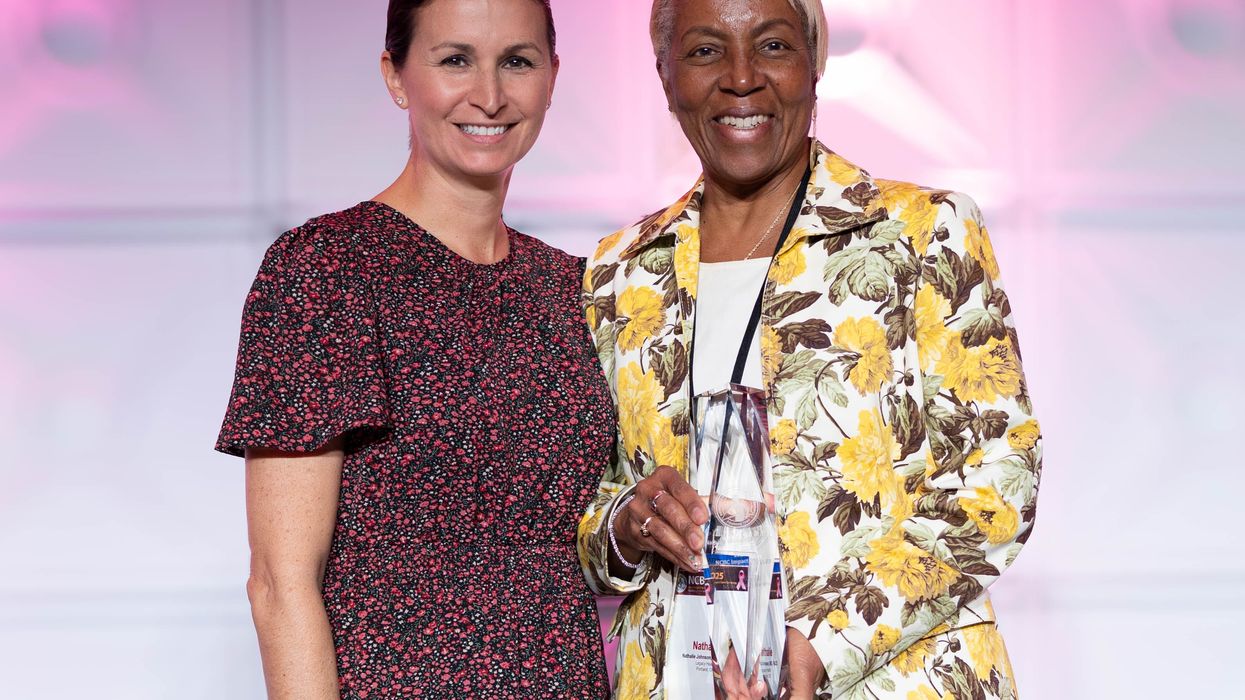Divine Health: Living with lupus can be challenging, as it can cause a wide range of symptoms that vary in severity and can impact different aspects of a person's life. Lupus is a chronic autoimmune disease that affects an estimated 5 million people worldwide, with 16,000 new cases in the United States every year.
The symptoms of lupus can vary widely from person to person and may come and go unpredictably. Common symptoms include joint pain and swelling, extreme fatigue, skin rashes, fever, hair loss, chest pain, and shortness of breath.
Swollen hands, severe fatigue, and weight loss were all unexplainable symptoms that drove marketing strategist Stephania Schirru to the doctor to find out the root cause of her condition.
“My hands would swell up and stay swollen. When I went to the doctor, he suggested that I had some issues with blood circulation. He gave me a medication that was supposed to help with my circulation. However, the medication only made my symptoms worse. Finally, I just stopped taking it,” said Schirru, who was only 20 years old at the time.
Over time, her fatigue led her to sleep 10 hours a day. When she woke up, she was still tired. Diarrhea, vomiting, and a high fever followed. Her eyes became so sensitive to light that she could no longer drive her car. One day, she was overcome by her symptoms, and her roommate drove her to the emergency room.
“When I went to the ER, I stayed in the waiting room for a long time. Once they saw me, they tried to draw blood. By this time, I was so dehydrated that they couldn't find a vein. It seemed like they poked me about 30 times before they were able to draw any blood. Then I was hospitalized,” recalled Schirru.
After she was admitted to the hospital, the doctors found that her white blood count was very low. Ten days later, she was diagnosed with lupus.
Schirru is biracial. According to the Lupus Foundation of America, African-American women will develop lupus at almost double the rate of white women. African-American women also tend to develop lupus at a younger age and experience more serious symptoms and complications than other races or ethnicities.
Dr. Chrisette Dharma, a North Texas Physician, stated lupus has a genetic predisposition. However, just because someone in your family has the disease doesn’t mean that you will get it. She advised that if you have signs and symptoms of lupus, you should get checked out by your doctor so that they can test your blood for inflammation.
“At first, I just didn't know what was going on. I felt that I was always relatively healthy. Because I come from Germany, I eat differently. I was a professional athlete and was very active.
For the most part, you don't look like you have lupus. With many other diseases, you might see signs on your face or your skin. If you break a bone, you know the bone is broken. Yet with lupus, everything is happening inside of you,” said Schirru.
Dr. Dharma acknowledged that there are various triggers that can cause lupus to flare up.
“I had my first flare-up in 2015. Then I was good for about 6 years. In 2021, I had a flare-up, and then I had another one last year during the summer,” recalled Schirru.
After a flare, Schirru usually has to be hospitalized. During that time, she is nourished back to health with Intravenous (IV) therapy and steroids.
“Over the years, my routine has become crucial because stress can impact my illness. I do meditation, prayer, and journaling,” stated Schirru.
To keep her condition under control, she works out regularly and avoids processed food.
“I eat very little meat, if I eat any at all. Also, I try to protect my peace. If there's anyone in my environment that might disturb that or a client that is going to cause a problem, I will try to eliminate the situation,” said Schirru.
Studies have shown that people with lupus are sensitive to both physical and emotional stress. High stress levels can cause symptoms to flare up. During symptom flares, inflammation can affect different parts of the body, including joints and organs.
When Schirru was first diagnosed with lupus, she was told that she would not be able to have children.
“Honestly, both of my children were not planned. But both of my pregnancies were heavily monitored. Although my deliveries have been fine. After the birth of my daughter, I almost bled out due to postpartum hemorrhage.
I have realized for me it’s very risky to be pregnant and to have to go through delivery,” said Schirru.
Now, as the mother of two children, a three-year-old daughter, Khloé, and a five-year-old son, Khai, Schirru takes managing her inner health as seriously as her outer health.
“I realized that God healed me, and he is continuing to work things out for me. Even when things have been dark for me, it has been my faith that has made a difference. I encourage people dealing with a condition like lupus to always keep their faith.
I like to control situations, but I have learned that there are certain things that you can’t control. It’s in those situations that you must let go and leave it to God,” advised Schirru.















 Dr. Cary S. Kaufman teaches the "Essentials of Oncoplastic Surgery" course through the National Consortium of Breast Centers, providing breast surgeons around the world with advanced techniques for optimal breast surgery outcomes.
Dr. Cary S. Kaufman teaches the "Essentials of Oncoplastic Surgery" course through the National Consortium of Breast Centers, providing breast surgeons around the world with advanced techniques for optimal breast surgery outcomes.
 Dr. Jay Harness, MD, FACS, founder of Cancer Fitness, believes that when a woman begins exercising after breast cancer, it marks the start of her personal reconstruction journey.
Dr. Jay Harness, MD, FACS, founder of Cancer Fitness, believes that when a woman begins exercising after breast cancer, it marks the start of her personal reconstruction journey.
